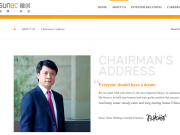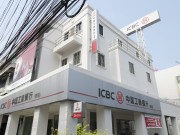Fighting the Dark Forces to Financial Success
This article is produced by Morningstar, authored by Shihan Abeyguna and published on 18th January 2017. Read the original article here.
A good investor is privy to the ‘dark forces’ of human nature that derail rational, profit making behaviors.
A good investor is privy to the ‘dark forces’ of human nature that derail rational, profit making behaviors. As much as anything else, successful investing requires the ability to identify and overcome one’s own psychological weaknesses.
Morningstar Behavioral Economist Sarah Newcomb recently published her new book, LOADED: Money, Psychology, and How to Get Ahead without Leaving Your Values Behind. In it, Sarah probes the effect of personal experiences and core values on financial attitudes and offers framework to help readers develop healthier relationships with money.
She’s explored this fascinating and important topic to better understand how smart, talented people can get in their own way financially. She’s counseled and taught individuals, couples, small business owners, students, parents, professionals, and teachers with myriad financial challenges and needs – and in every case, there is a story that runs parallel to the numbers.
Our objectivity is usually skewed and, thus the true problem is clouded by biases and superficial trivialities. The trader who does not stick to a trading plan, but fails to realize that “not sticking to it” is the problem, continually adjusts strategies, believing that is where the fault rests.
Experts in the field of behavioral finance like Sarah have a lot to offer in terms of understanding psychology and the behaviors of investors, particularly the mistakes that they make. Awareness of potential psychological pitfalls can allow us to change our habits, hopefully creating more profits.
Here’s three common psychological forces that can often cause problems.
#1 Over-Confidence
Studies show that overconfident investors trade more rapidly because they think they know more than the person on the other side of the trade. Trading rapidly costs plenty, and rarely rewards the effort.
” overconfident investors trade more rapidly “
We’ll repeat yet again that trading costs in the form of commissions, taxes, and losses on the bid-ask spread have been shown to be a serious damper on annualized returns. These frictional costs will always drag returns down.
#2 Loss Aversion
It’s no secret, for example, that many investors will focus obsessively on one investment that’s losing money, even if the rest of their portfolio is in the black. Investors have been shown to be more likely to sell winning stocks in an effort to “take some profits,” while at the same time not wanting to accept defeat in the case of the losers. It also doesn’t help that we tend to feel the pain of a loss more strongly than we do the pleasure of a gain. It’s this unwillingness to accept the pain early that might cause us to “ride losers too long” in the vain hope that they’ll turn around and won’t make us face the consequences of our decisions.
3. Confirmation bias
Too often we extrapolate our own beliefs without realizing it and engage in confirmation bias, or treating information that supports what we already believe, or want to believe, more favorably. If we’ve purchased a managed fund concentrated in health-care stocks, we may overemphasize positive information about the sector and discount whatever negative news we hear about how these stocks are expected to perform.
Hindsight bias also plays off of overconfidence and anchoring behaviour. This is the tendency to re-evaluate our past behaviour surrounding an event or decision knowing the actual outcome. Our judgment of a previous decision becomes biased to accommodate the new information.
Once we are aware that we may be affected by our own psychology, we realize it may affect our trading on a subconscious level. Awareness is often enough to inspire change, if we do in fact work to improve our trading.
At Morningstar, we anticipate these and have set up certain structures that can prevent you from falling into the dark force’s tempting orbit. For a start, we simplify complexity through rigorous research, elegant design, and analytical tools all help demystify the process so you can now distill your investments to their fundamentals, understand how they work, whether they are worthwhile, and the role they should play in a holistic investment strategy.
We also encourage long term investing, because as Benjamin Graham said, “In the short term the stock market behaves like a voting machine, but in the long term it acts like a weighing machine.” Investing requires the ability to stick to a strategy even when it may not be performing at its best.
Fees and incentives are also often difficult to understand and not made transparent for investors. As we analyze the fundamentals of every investment we research, Morningstar take the time to read the fine print to understand the true costs of every investment and how that subtracts from its overall performance. Thus we help investors understand exactly what they have invested in, what they are paying for, and how to get the most value from.
We can all be much better investors when we learn to select stocks carefully and for the right reasons, and then actively block out the noise. Any temporary comfort derived from investing with the crowd or following a market guru can lead to fading performance or inappropriate investments for your particular goals.
This article is produced by Morningstar, authored by Shihan Abeyguna and published on 18th January 2017. Read the original article here.
Sign Up / Register
Caproasia Users
- Manage $20 million to $3 billion of assets
- Invest $3 million to $300 million
- Advise institutions, billionaires, UHNWs & HNWs
Caproasia Platforms | 11,000 Investors & Advisors
- Caproasia.com
- Caproasia Access
- Caproasia Events
- The Financial Centre | Find Services
- Membership
- Family Office Circle
- Professional Investor Circle
- Investor Relations Network
Monthly Roundtable & Networking
Family Office Programs
The 2025 Investment Day
- March - Hong Kong
- March - Singapore
- July - Hong Kong
- July - Singapore
- Sept- Hong Kong
- Sept - Singapore
- Oct- Hong Kong
- Nov - Singapore
- Visit: The Investment Day | Register: Click here
Caproasia Summits
- The Institutional Investor Summit
- The Investment / Alternatives Summit
- The Private Wealth Summit
- The Family Office Summit
- The CEO & Entrepreneur Summit
- The Capital Markets Summit
- The ESG / Sustainable Investment Summit




































